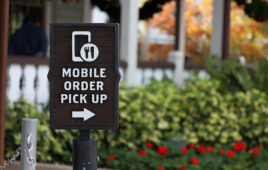 On Wednesday, President Donald Trump signed into law a multi-billion-dollar emergency COVID-19 aid package titled Families First Coronavirus Response Act.
On Wednesday, President Donald Trump signed into law a multi-billion-dollar emergency COVID-19 aid package titled Families First Coronavirus Response Act.
The legislation, which will take effect within 15 days of the president’s signing, expands Medicaid and unemployment benefits, orders free COVID-19 testing and mandates paid sick leave and childcare leave for some employees.
Employers at many small- or mid-sized companies will be required to provide up to two weeks of paid sick leave, capped at $511 a day, to full- and part-time employees who are being tested or treated for COVID-19 or have been diagnosed with it — or if they have been told by a doctor or government official to stay home because of exposure or symptoms.
Those whose family members are affected by the virus are also eligible to receive up to two-thirds of their pay, capped at $200 a day. And those whose children’s schools have closed may receive up to two-thirds of their pay, capped at $200 a day, for up to 12 weeks.
Businesses with 50 or fewer employees may be exempt if the cost would cause material financial harm to the business.
Covered employers will be eligible for quarterly tax credits equal to 100% of the costs of the leave taken against their employer share of Social Security taxes. The credits are refundable; if an employers’ social security tax liability is less than the amount of their available credit, they will receive a refund of the additional amount.
These benefits last through Dec. 31, 2020.
The bill also modifies United States Department of Agriculture (USDA) food assistance and nutrition programs to suspend the work requirements for the Supplemental Nutrition Assistance Program (SNAP) and allow states to request waivers to provide certain emergency SNAP benefits.
The House legislation was negotiated between House Speaker Nancy Pelosi and the Trump administration. The Senate overwhelmingly approved the relief bill, projected to authorize well over $100 billion worth of aid, by a vote of 90-8.
An $8.3 billion spending package to fight and treat the virus passed in early March. The Senate will now negotiate a much larger aid bill, potentially worth up to $1 trillion, that’s primarily focused on helping small businesses and the airline industry.




